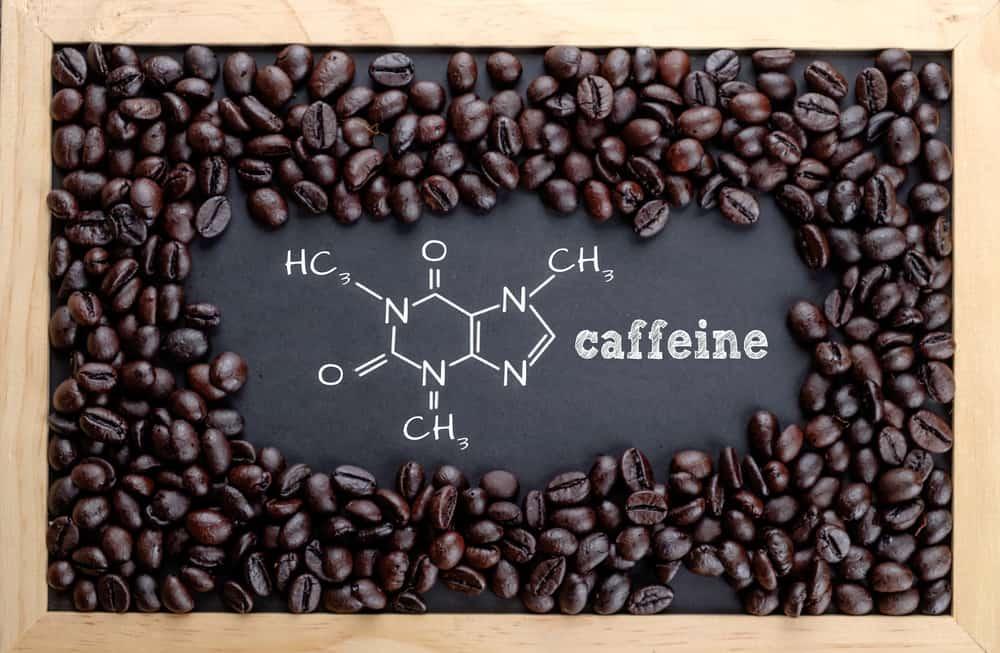Caffeine is a ubiquitous ingredient found in many of our favorite beverages, from coffee to tea to sodas. But what exactly is this magical substance that helps us feel more alert and energized throughout the day? In this article, we will delve into the fascinating world of caffeine and explore its various effects on the body and mind. So grab a cup of your favorite caffeinated drink and join us on this journey to uncover the mysteries of this beloved stimulant.
Table of Contents
- Types of caffeinated beverages to try
- Benefits and drawbacks of consuming caffeine
- How to safely regulate your caffeine intake
- Tips for maximizing the effects of caffeine
- Q&A
- Closing Remarks

Types of caffeinated beverages to try
There are countless options when it comes to caffeinated beverages, each offering a unique experience for your taste buds and energy levels. Whether you’re a fan of bold, strong flavors or prefer something more subtle and sweet, there’s a caffeinated drink out there for everyone. Here are some of the most popular types of caffeinated beverages to explore:
- Coffee: A classic choice, coffee comes in various forms such as espresso, cappuccino, latte, and more. Each type offers a different ratio of coffee to milk, giving you the freedom to find your perfect balance of caffeine and creaminess.
- Tea: From black to green to herbal, tea is a versatile option for those looking for a different kind of caffeine kick. With so many flavor varieties and brewing methods, tea is a great way to experiment with different tastes while getting your dose of energy.
- Energy drinks: These beverages are specifically formulated to give you a quick burst of energy, often with added vitamins and amino acids. While they may not be everyone’s cup of tea (pun intended), energy drinks can be a convenient option for those with busy lifestyles or looking for a boost before a workout.

Benefits and drawbacks of consuming caffeine
For many people, consuming caffeine is a daily ritual that provides a much-needed energy boost to start the day. Caffeine is known to increase alertness and improve concentration, making it a popular choice for those looking to enhance their cognitive function. Additionally, caffeine can also help improve physical performance, making it a favorite among athletes and fitness enthusiasts.
However, like everything else, there are both benefits and drawbacks to consuming caffeine. On one hand, caffeine can help increase metabolism and aid in weight loss. It can also act as a mood enhancer, helping to elevate mood and alleviate feelings of fatigue. On the other hand, consuming too much caffeine can lead to side effects such as insomnia, anxiety, and digestive issues. It is important to consume caffeine in moderation and be mindful of its effects on your body.

How to safely regulate your caffeine intake
When it comes to consuming caffeine, moderation is key. It’s important to be mindful of how much caffeine you’re consuming each day to ensure you’re not overdoing it. Here are some tips to help you safely regulate your caffeine intake:
- Start your day with a cup of coffee or tea to jumpstart your morning.
- Avoid consuming caffeine late in the day to prevent disruptions to your sleep schedule.
- Switch to decaffeinated beverages in the afternoon to reduce your overall caffeine intake.
- Be aware of the caffeine content in energy drinks and other beverages to make informed choices.
| Caffeinated Beverage | Caffeine Content |
|---|---|
| Coffee (8 oz) | 95 mg |
| Black Tea (8 oz) | 47 mg |
| Soda (12 oz) | 35 mg |
Remember, everyone’s tolerance to caffeine is different, so listen to your body and adjust your intake accordingly. By being mindful of how much caffeine you’re consuming and making smart choices throughout the day, you can enjoy the benefits of caffeine without overdoing it.

Tips for maximizing the effects of caffeine
One way to maximize the effects of caffeine is to consume it strategically throughout the day. Instead of drinking a large amount all at once, try spreading your caffeine intake over several smaller doses. This can help you maintain more consistent energy levels without experiencing the crash that often comes from a single big dose.
Additionally, be mindful of when you consume caffeine. Drinking it too late in the day can disrupt your sleep, so it’s best to avoid caffeine in the afternoon and evening if you’re sensitive to its effects. And don’t forget to stay hydrated! Caffeine is a diuretic, so it’s important to drink plenty of water along with your coffee or tea to prevent dehydration.
Q&A
Q: What is caffeine?
A: Caffeine is a natural stimulant found in coffee, tea, and certain other beverages.
Q: How does caffeine affect the body?
A: Caffeine stimulates the central nervous system, making you feel more alert and awake.
Q: What are some sources of caffeine?
A: Some common sources of caffeine include coffee, tea, energy drinks, and chocolate.
Q: Can you consume too much caffeine?
A: Yes, consuming too much caffeine can lead to negative side effects such as jitteriness, insomnia, and rapid heartbeat.
Q: Is caffeine addictive?
A: Caffeine is considered mildly addictive, as regular consumption can lead to physical dependence.
Q: How much caffeine is safe to consume?
A: The FDA recommends consuming no more than 400 milligrams of caffeine per day, which is roughly equivalent to four cups of coffee.
Q: Can caffeine have any health benefits?
A: Some studies suggest that caffeine may have potential health benefits, such as improving concentration and reducing the risk of certain diseases.
Q: Are there any risks associated with consuming caffeine?
A: Consuming too much caffeine can lead to negative side effects, and some individuals may be more sensitive to caffeine than others. It’s important to monitor your caffeine intake and listen to your body’s cues.
Closing Remarks
caffeine is a fascinating and complex substance that has been woven into the fabric of our daily lives. Whether you love your morning cup of coffee, revel in the buzz of an energy drink, or simply appreciate the occasional indulgence in chocolate, it’s clear that caffeine plays a significant role in our society. So next time you reach for that pick-me-up, remember the history and science behind this little molecule that packs such a powerful punch. And as always, remember to enjoy it in moderation to truly savor all that caffeine has to offer.










